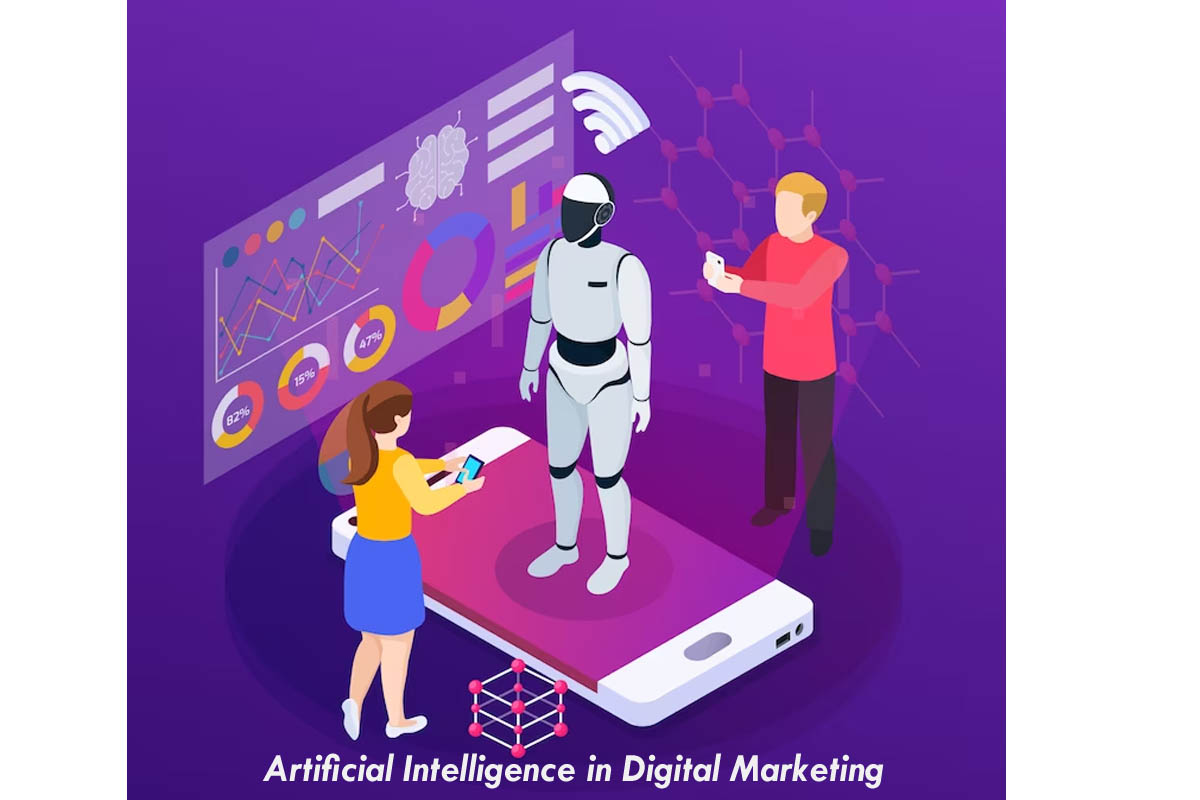Artificial Intelligence in Digital Marketing
Artificial Intelligence in Digital marketing has a significant impact and has changed the face of digital marketing. From voice search to rank-brain and personalized recommendations. AI is taking the role of humans in understanding marketing trends. Many marketers implement Artificial Intelligence and machine learning in their industries to save time and resources.
AI analysis data more relevantly to understand the behavior of the target audiences improving user experience and providing users with whatever they need. Let us learn more about Artificial Intelligence in digital marketing having great results.
How is Artificial Intelligence Having Impact on Digital Marketing?
Effectiveness in Marketing:
With Artificial Intelligence in Digital marketing, great effective marketing strategies are created. It increases productivity. You can do the repetitive tasks in an automated mode. AI helps in driving leads and generate revenue with less investment.
More Return on Investment:
It will help you create much better-performing content. Since it is helping you reach more audiences, it will increase your ROI leading to a more successful business.
Uses of Artificial Intelligence in Digital Marketing
AI helps your business create personalized products purchase that will go through recommendations that are based on machine Learning. One of the protruding examples of this is Amazon. They recommend products based on the last searches of customers.
It helps handle customers, leading to a smooth process of managing data. Many other work processes are controlled by artificial Intelligence. A study shows that around 40% of economic earnings in 2030 will come through AI and machine learning which will be more personalized and effective.
Customer Behaviour
Artificial Intelligence can process and analyze huge amounts of data more proficiently and accurately than humans. AI algorithms can uncover customer data patterns, trends, and associations, enabling marketers to gain valuable insights into their audience’s behavior, preferences, and purchasing patterns. These insights help optimize marketing strategies, personalize content, and make data-driven decisions.
AI enables advanced customer segmentation using machine learning algorithms to evaluate data and identify distinct customer groups based on various characteristics and behaviors. This separation allows marketers to create personalized marketing campaigns and tailor messages to specific customer segments, increasing engagement and conversion rates.
AI can assist in content creation by generating automated reports, writing product descriptions, or even creating blog posts and articles. Natural language generation algorithms analyze data and develop written content that is coherent, relevant, and customized to the target audience. AI-powered content curation tools can also curate relevant and personalized content for users based on their preferences and interests.
Voice Activation
With the rise of voice-activated devices and virtual assistants like Apple assistant Siri, Google Assistant, and Amazon Alexa, optimizing content for voice search has become crucial. AI-powered voice recognition technology helps businesses understand user queries more accurately and deliver relevant search results. Marketers can optimize their content by targeting long-tail keywords, answering common questions concisely, and providing structured data markup.
Artificial Intelligence chatbots and virtual assistants are becoming increasingly widespread in digital marketing. They can interact with clients in real time, providing instant support, answering questions, and assisting with purchases. Chatbots use natural language processing algorithms to understand and respond to customer inquiries, enhancing customer service and improving the overall user experience.
Overall Performance
AI tools can analyze social media data, sentiment analysis, and user behavior to provide insights into audience engagement, brand perception, and campaign performance. AI-powered social media management platforms can schedule posts, recommend content, analyze performance, and automate repetitive tasks, making social media marketing more effective.
Artificial has transformed programmatic advertising, where AI algorithms analyze user data and real-time bidding information to deliver targeted ads to the right audience at the right time. AI can optimize ad placements, budgets, and bidding strategies, improving ad performance, higher conversion rates, and reducing ad spend wastage.
AI algorithms can predict future outcomes based on historical data, enabling marketers to anticipate customer behavior, optimize campaigns, and make informed decisions. Predictive analytics can be used for lead scoring, churn prediction, sales forecasting, and campaign performance optimization, among other applications.
Conclusion
It’s crucial to note that while AI brings several benefits to digital marketing, human oversight and strategic human supervision are still necessary. Marketers need to understand the restrictions of AI, ensure the ethical use of data. And it maintain a stability between automation and human interaction to create meaningful connections with customers.

